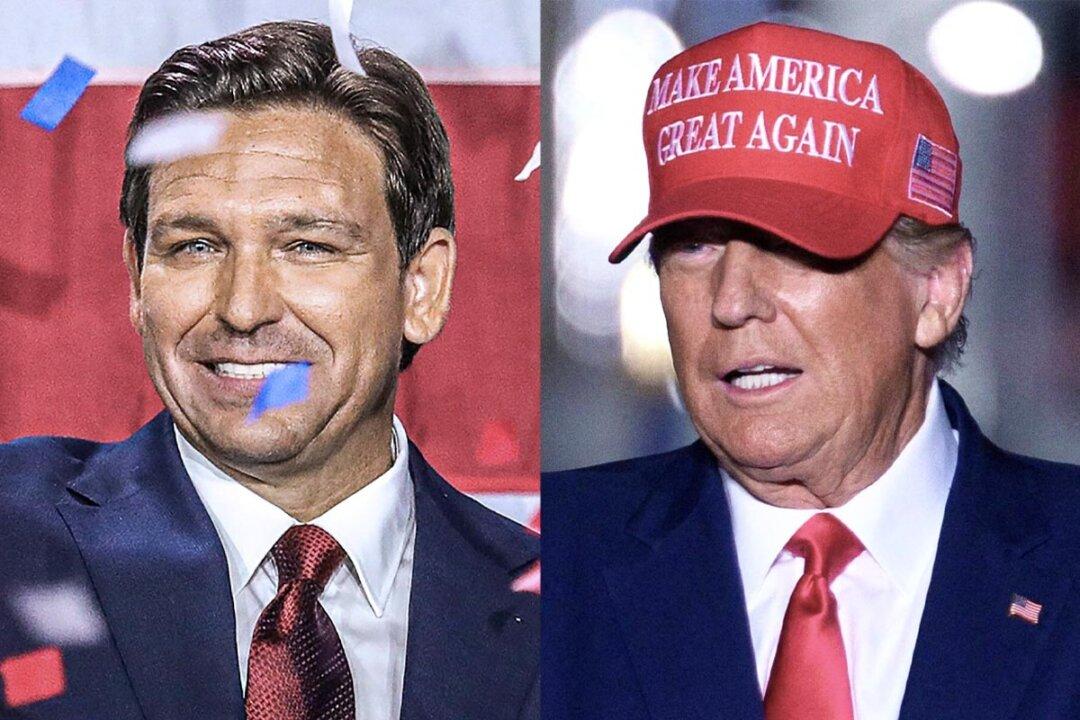Former President Donald Trump and Florida Gov. Ron DeSantis are fighting a war of words, and the battlefield is social media.
Hardly a day goes by without sniping. Trump, a declared presidential candidate for 2024, lashes out relentlessly at DeSantis, while the likely-but-undeclared Republican candidate takes subtler swings at the former political ally.





